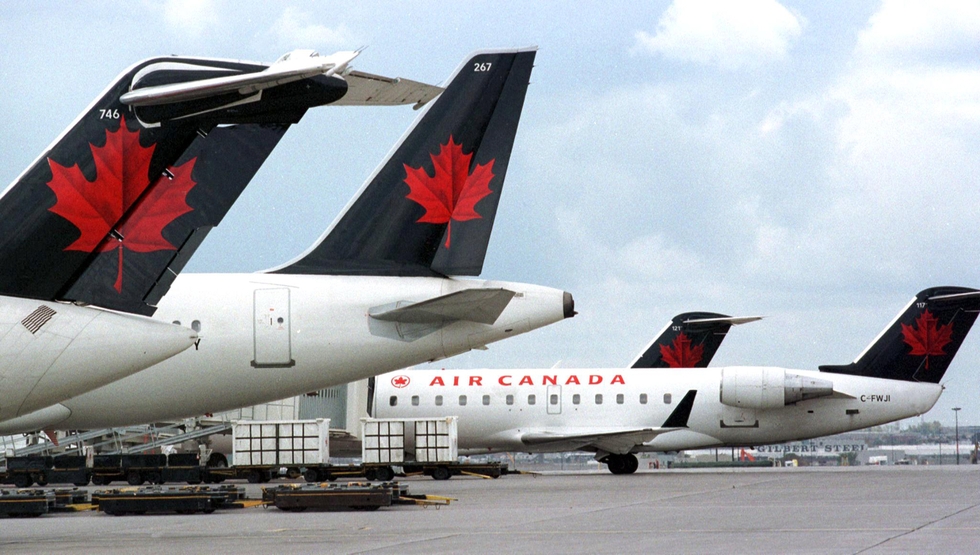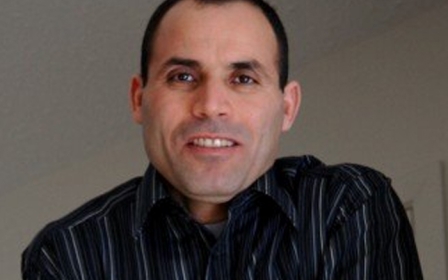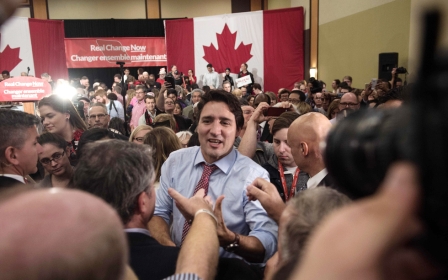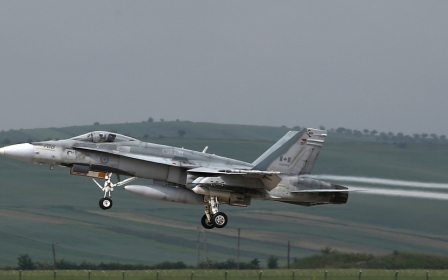Canadian 6-year-old still on no-fly list despite government assurances

TORONTO, Canada - Six-year-old Syed Adam Ahmed has been subjected to additional security screenings at airports since he was only a baby.
So it came as no surprise to his mother, Khadija Cajee, when she, Adam and his two older sisters faced delays while checking in for an Edmonton-bound flight from Toronto’s Pearson International Airport on Friday morning.
“We still cannot check in online or at the kiosk. The child needs to be visually identified by an agent,” Cajee told Middle East Eye in a phone interview on Friday afternoon from Edmonton, where the family is attending her brother’s wedding.
“They were trying to be very discreet about it, and turn the screen away. They didn’t need to make a call to the security centre to have him cleared … Every other time before they would always have to make a call,” she said.
That doesn’t make it any easier for Cajee to explain to her son why he’s been flagged as a security threat every time he flies.
“He’ll say, ‘Mommy am I still on the list?' And I’ll say yes … I don’t really know how to explain it to him,” she said.
‘Designated High Profile’
Adam has been flagged since he was a toddler, and the family still does not know why, Cajee said.
The latest airport delay came after he made international headlines on New Year’s Eve, when security officials stopped him and his father, Sulemaan Ahmed, on their way to the Winter Classic hockey game in Boston.
Ahmed took a photo of the check-in screen at the airport, which flagged the six-year-old as a “DHP Passenger” – designated high profile – essentially meaning that he is on a no-fly list. He posted the image online which was shared hundreds of times.
The family, based in Markham, Ontario, just outside of Toronto, has since called on Ottawa to remove Adam and other Canadian children from the no-fly list, and have additional identifiers added to better differentiate between people with similar names.
“I really am not surprised,” Cajee said about being delayed again on Friday, “but I am still hopeful that [the government] will go ahead and make these changes in the not too distant future.”
Changes being explored, Ottawa says
Public Safety Minister Ralph Goodale “has heard the concerns of the family of Syed Adam Ahmed and is supportive,” a representative from Goodale’s office told Middle East Eye in an email on Friday.
Scott Bardsley said ministry officials have advised airlines that additional security screening validation is not required for passengers under the age of 18.
The department, Bardsley said, is looking into amending the Secure Air Travel Regulations to “help differentiate individuals who have similar or the same names” as those on Canada’s no-fly list, known as the Passenger Protect Program (PPP). It also plans to hold public consultations on the issue.
The PPP is administered by Public Safety Canada and Transport Canada in cooperation with other Canadian security agencies. The Public Safety minister can add a person to the list if he or she poses a threat to transportation security, or is attempting to travel abroad for “terrorism offences”.
Bardsley said reasons unrelated to the PPP could explain why a passenger may experience delays or not be able to get onto an airplane.
“Other countries, as well as airlines, maintain various security-related lists with different criteria and thresholds, which may result in delays for individuals traveling to, from, or even within Canada,” he wrote.
That means that a Canadian with a name that is flagged on the US no-fly list, for example, could be causing all the problems – even if that passenger is only flying within Canada.
No recourse for many
Under Canadian regulations, individuals subjected to repeated delays or denials on boarding – but have not received a written notice telling them they cannot fly under the PPP – are not eligible for recourse.
Only Canadians who have been denied boarding and have received a written notice when attempting to get a boarding pass can request to have their names removed from the list.
“The whole question of redress and appeal remains a total mystery,” Monia Mazigh, national coordinator for the International Civil Liberties Monitoring Group, wrote in a recent post about the no-fly list.
The ICLMG submitted an access to information request in January to get information about the number of people on the no-fly list, especially minors, the appeal process, and how many written notices are issued annually.
The group received 88 pages of documents, only eight of which were not redacted, and most of its questions remained unanswered.
“Reading from these pages is a sort of a guessing game. A charade with skewed distribution of information, where the government is preventing us from seeing the full picture,” Mazigh wrote.
A call to action
At least two dozen Canadian children are “falsely flagged as security threats,” the #NoFlyListKids campaign, lead by Cajee, says on its website.
That includes another Adam Ahmed, a 17-year-old from Toronto. “We had the exact same problem returning from India last year. No explanation – nothing,” his mother Karen Ahmed posted on Twitter in January.
Another two-dozen Canadian families are affected, but they have not come forward publicly in fear of further alienation, Cajee told MEE.
She said Ottawa must give families adequate recourse to get their children’s names off the no-fly list and provide information as to where the “DHP” stamp originates.
“If it’s not a Canadian-based list, then we want our government to help us get our kids off this list, wherever it originates. We didn’t even know the DHP list existed until that day my husband took the picture of that screen in December,” Cajee said.
“We just want our children to have the right to the same liberties and safety and security as every other Canadian child. They shouldn’t be treated differently because of their name. They should be afforded the same rights and liberties as everybody else.”
New MEE newsletter: Jerusalem Dispatch
Sign up to get the latest insights and analysis on Israel-Palestine, alongside Turkey Unpacked and other MEE newsletters
Middle East Eye delivers independent and unrivalled coverage and analysis of the Middle East, North Africa and beyond. To learn more about republishing this content and the associated fees, please fill out this form. More about MEE can be found here.




